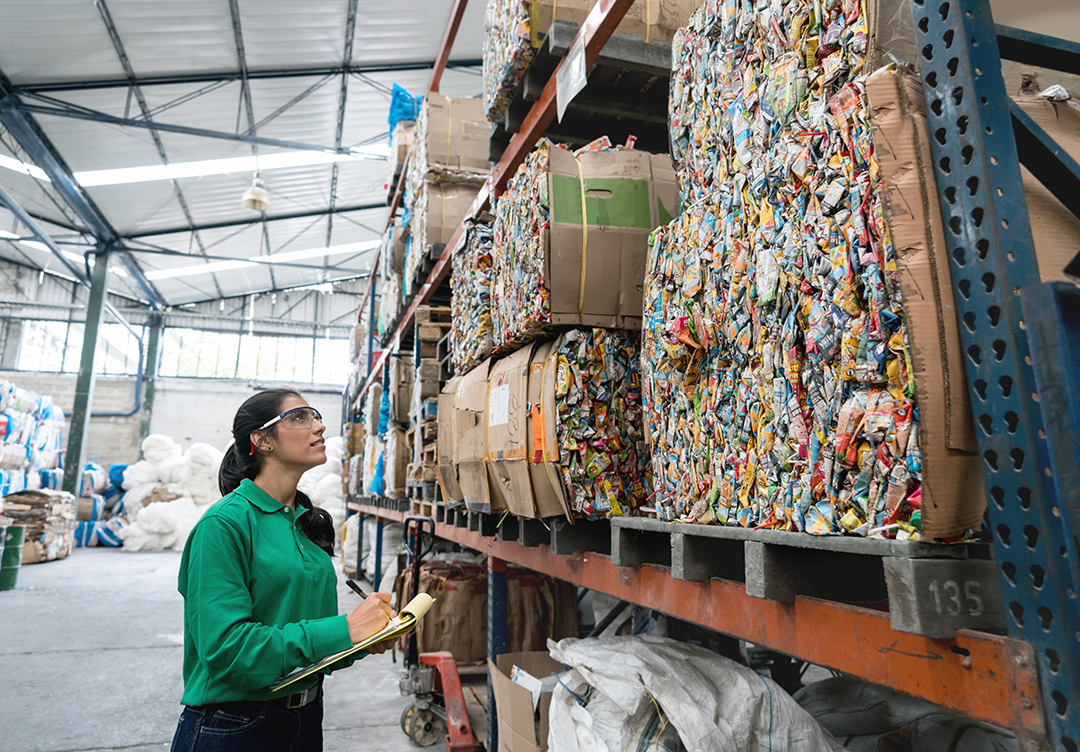The UN Environment Programme (UNEP) has published an updated assessment of global waste management, analyzing data on municipal solid waste management worldwide. Warning that by 2050, municipal waste is set to increase by two-thirds, with its costs almost doubling, the report calls for halting waste growth by shifting towards zero-waste and circular economy models.
Titled, ‘Beyond an Age of Waste: Turning Rubbish into a Resource,’ the Global Waste Management Outlook 2024 (GWMO 2024) “provides an overview of the amount of municipal solid waste being generated, how it is being managed, and the impacts of current practices on planetary and human health.”
The report underscores that waste contributes to the triple planetary crisis of climate change, pollution, and biodiversity loss. According to its projections, municipal solid waste generation will grow from 2.3 billion tonnes in 2023 to 3.8 billion tonnes in 2050. In 2020, the global direct cost of waste management was an estimated USD 252 billion – or as much as USD 361 billion, if the hidden costs of pollution, poor health, and climate change from inadequate waste disposal practices are factored in. The report warns that by 2050, this global annual cost could rise to USD 640.3 billion unless urgent action is taken to improve waste management.
“Moving towards a circular economy and taking a zero-waste approach is the only route to a safe, affordable and sustainable future,” the report argues. Among country-specific recommended pathways, it calls for:
- Using data and digitalization to prioritize waste prevention and management;
- Banning problematic materials and implementing mandatory schemes to ensure that polluters pay;
- Adopting inclusive approaches and behavioral science to engage citizens in waste avoidance and waste segregation for recycling;
- Integrating the principles of a just transition into decision making, ensuring that the informal sector is valued and that programmes are gender sensitive; and
- Building national expertise to develop context-appropriate policies that maximize the benefits of waste reduction and management.
Outlining the roles for multilateral development banks (MDBs) and donors, national governments, municipalities, producers and retailers, and consumers, the report highlights three waste management priorities: shifting towards zero-waste and circular economy models; prioritizing municipal solid waste management to prevent open dumping and waste burning; and motivating producers and retailers to provide goods and services in ways that avoid waste generation, while phasing out the most problematic and polluting materials.
Recognizing that waste generation is linked to gross domestic product (GDP) and that many fast-growing economies are struggling with rapid waste growth, UNEP Executive Director Inger Andersen said GWMO 2024 “can support governments seeking to prevent missed opportunities to create more sustainable societies and to secure a livable planet for future generations.”
President of the International Solid Waste Association (ISWA) Carlos Silva Filho described GWMO 2024 as “a guide and call for action to catalyze collective efforts to support bold and transformative solutions, revert the adverse impacts of current waste management practices, and provide clear benefits to every individual living on this planet.” “These actions are instrumental to accelerating the achievement of the 2030 Agenda,” he urged.
The report was launched on 28 February 2024 in Nairobi, Kenya, on the margins of the sixth session of the UN Environment Assembly (UNEA-6). It was co-produced with ISWA, with financial support from the Governments of Japan and Sweden. [Publication: Global Waste Management Outlook 2024: Beyond an Age of Waste: Turning Rubbish into a Resource] [Executive Summary] [Publication Landing Page] [UNEP Press Release] [SDG Knowledge Hub Story on World Bank’s Global Snapshot of Solid Waste Management to 2050] [SDG Knowledge Hub Story on Global Waste Management Outlook 2015]

